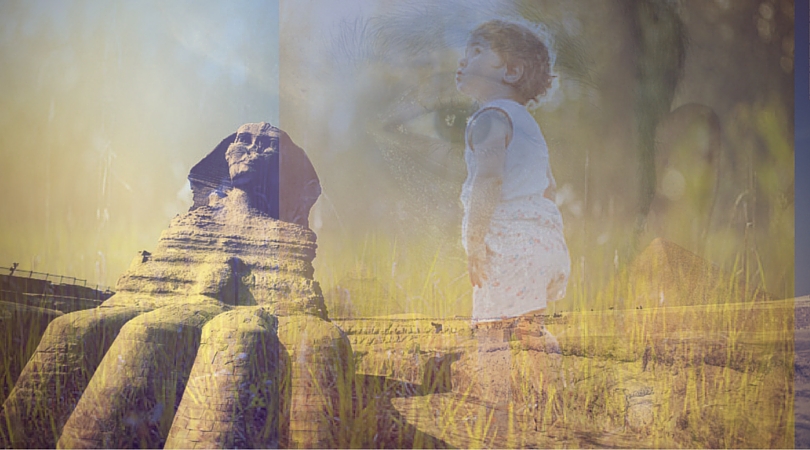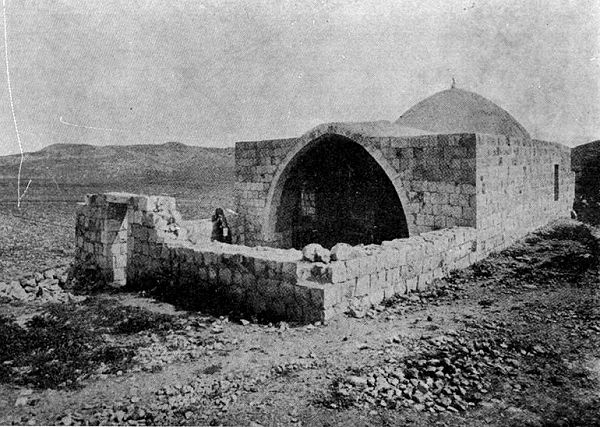“You shall safeguard the matzot, for on this very day I will have taken your legions out of the land of Egypt; you shall observe this day for your generations as an eternal decree. In the first, on the fourteenth day of the month in the evening shall you eat matzot, until the twenty-first day of the month in the evening.” (SHEMOT 12:17-18)
“Matzot shall be eaten throughout the seven-day period; no ḥametz may be seen in your possession, nor may leaven be seen in your possession in all your borders.” (SHEMOT 13:7)
The Maharal of Prague teaches in Gevurot HaShem that “matzah is simple as it is not combined with additional ingredients such as leaven, which would compound and complicate it. Simplicity in essence denotes independence, for an independent being is free and not bound together or dependent upon others. A slave is bound to his master and completely dependent upon him while a free man stands independently, not bound to anyone else. Hence, matzah specifically is an appropriate symbol for the Exodus.”
The Maharal’s explanation of matzah as simplicity and ḥametz (unleavened bread) as complexity provides an essential insight into the mentality of Diaspora Jewry. The word ḥametz shares the root letters of l’haḥmitz (to miss), symbolizing the idea of missing an opportunity. Because it includes leaven, ḥametz is complex and therefore prone to miss out.
When a person defines himself according to his complexity – by what he has acquired in life – he is naturally blocked from fully expressing his inner essence. Each of us is a soul – a unique expression of G-d – playing a character with a distinct purpose in history. And our ability to fully realize our individual missions in life is largely dependent upon our self-identification as souls who, like actors, play roles in the story of man. The more we define ourselves as the actors rather than as the characters we play, the more our characters can actually succeed at fulfilling their roles in the story. But one who defines himself according to the external factors his character has acquired in life (wealth, status, academic credentials, etc.) becomes complex like ḥametz and trapped by these external factors, frightened to jeopardize them in pursuit of his true inner calling.
In the years leading up to the Holocaust, for example, many Jews in Europe had possessions and professions that they were not prepared to abandon. Their complexity kept them psychologically trapped until it became too late for a physical escape. Jewish community leaders in America, meanwhile, were frightened to sacrifice the success they had achieved and were therefore powerless to save their brothers overseas. They feared accusations of disloyalty if they were to focus on the “Jewish aspect” of America’s war effort against Germany. And some even feared that a great influx of Jewish refugees would bolster anti-Semitic attitudes within the United States. Partially due to the complexity of the Jewish Diaspora mentality, an opportunity was missed and six million were lost.
A complex person – one who defines himself as the character and not as the actor – is generally not ready for sacrifice because he is frightened to lose that which his character has acquired. While external factors alone do not automatically cause a person to be complex, how that person relates to these factors can easily reveal the extent of his complexity. A rich man fearful of becoming poor is not yet ready for redemption. In times of crisis, such a person would be unwilling to part with his material wealth and comfortable lifestyle.
A wealthy man in touch with his true inner self, however, is willing to risk losing everything he owns. Although he may know how to appreciate worldly goods, they do not define, trap or complicate him. Such a Jew is ready to sacrifice his money at any moment in order to express his inner essence and assume responsibility for the Nation of Israel’s historic mission. Instead of viewing himself as a wealthy individual, he is simply a unique piece of Knesset Yisrael – the giant collective Hebrew soul that reveals itself in space and time through millions of bodies called the Jewish people.
Matzah represents simplicity, which is the true essence of a soul. While the demands of a healthy society often necessitate that people become doctors, soldiers, builders and plumbers, these are only talents acquired in life and not a person’s actual essence. Practicing medicine, fighting wars, constructing homes and installing pipes are things that Jews must often do – especially when rebuilding Hebrew civilization in our homeland – but they can never define who or what a person is. Being simple is therefore the self-awareness of one’s deepest and truest inner essence as a unique spark of the timeless ultimate Reality without end.
While matzah is the bread of affliction, it is also the bread of freedom. One who views himself as simple can never become trapped by complex external factors. He recognizes himself as part of a larger Hebrew collective and, through a perspective psychologically grounded in Jewish history, is able to identify danger on the horizon before it reaches the maturity to strike. So long as one understands his true essence in its simplicity, he cannot be enslaved and is ready for redemption.
The courage of simplicity stems from the understanding that a person has absolutely nothing to lose. He is prepared to risk everything in order to take responsibility for the future of his people. This willingness to sacrifice oneself for the Hebrew Nation and its mission is born out of a love that elevates a soul from the level of the individual to that of the collective. The Maharal explains in Netzaḥ Yisrael that fear is the shell of love and that the stronger a person’s love grows the weaker his fears become.
Fear and selfishness are both symptoms of complexity while love and courage are actually products of simplicity. Fear results from a lack of compassion and paralyzes a person into irresponsible dormancy. But the less fear a person suffers, the more he is willing to sacrifice and the stronger his inner light can shine to the world. The freedom of simplicity that the matzah represents makes him capable of daring action in the face of adversity.
When the Hebrew Nation received a chance to be born out from Egypt, the majority of our people had viewed themselves to be “Egyptian Jews.” They defined themselves according to their complexity and therefore had to perish in the ninth plague of darkness, missing the opportunity to participate in Israel’s national birth. The minority, who defined themselves simply as Israel, snatched the opportunity to experience liberation and receive the Torah at Sinai. They realized that they had nothing to lose because all they really were was Israel and one cannot truly live up to being part of Israel while subsisting in the exile separate from the Hebrew mission. As the redemption process continues to unfold and we are confronted with newer and greater challenges to overcome, we must learn to properly define ourselves and strive to attain a genuine simplicity in order that we may succeed in ingathering our people back to our homeland, establishing the kingdom destined to manifest the Divine Ideal and fulfilling our national mission of shining G-d’s blessing to all of mankind.




